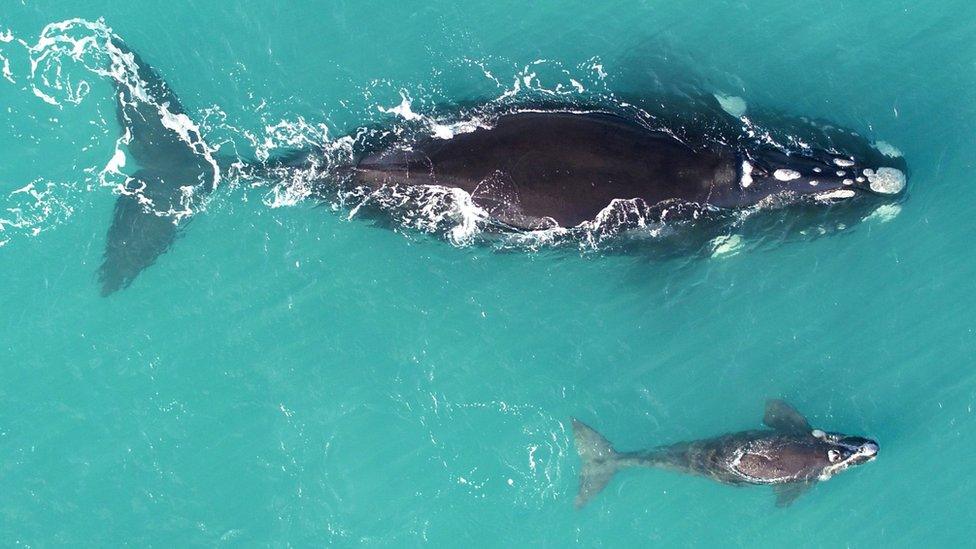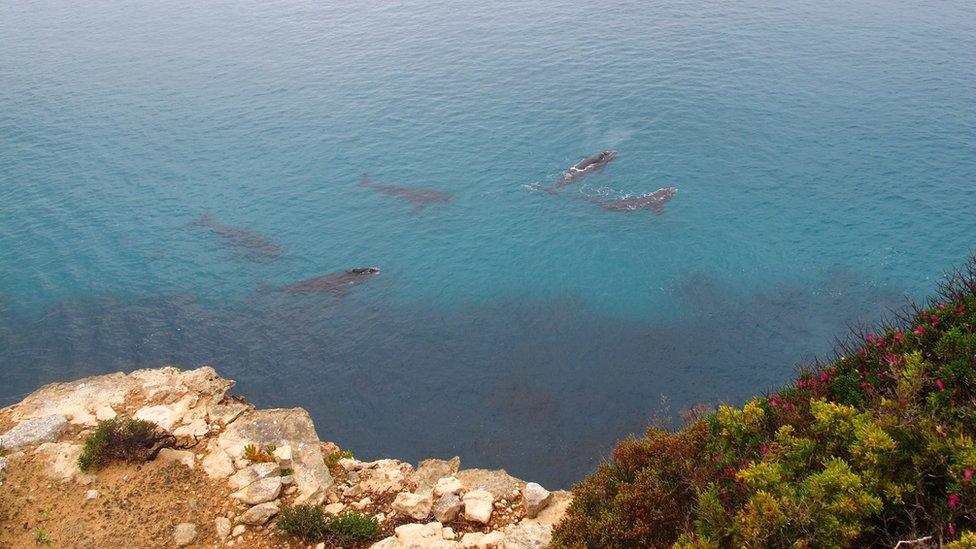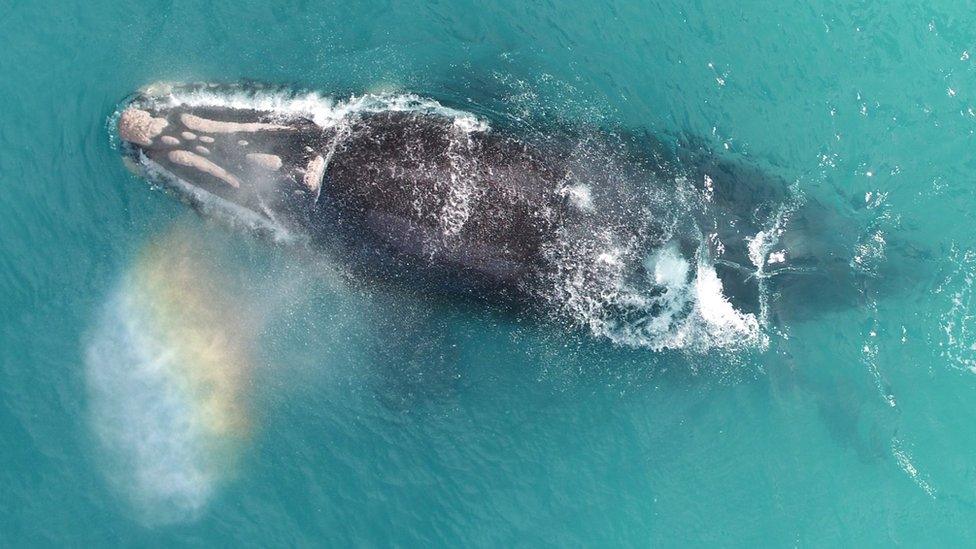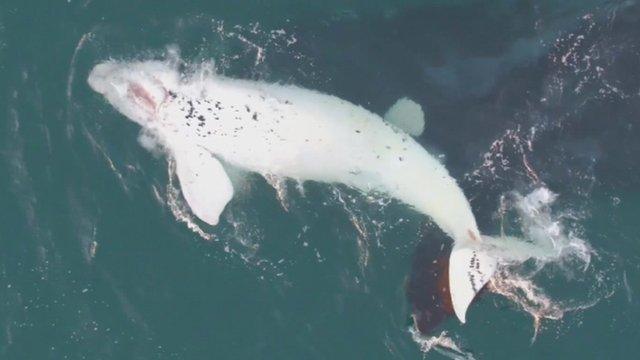Drones show southern right whales off Western Australia
- Published
Rare white southern right whale calf spotted off the coast of Western Australia
Drones are being used by researchers to study endangered southern right whales in their Australian breeding grounds.
The unmanned aerial vehicles captured a rare white southern whale calf on film as well as recording scenes little known about by scientists.
Record numbers of the whale species have been recorded in their Great Australian Bight breeding grounds.
Australia's southern right whale population is estimated to be 3,000 - 20% of its pre-whaling population.

A mother southern right whale with her calf in the Great Australian Bight

A pod of southern right whales spotted off the sheers cliffs of the Great Australian Bight
Murdoch University and Curtin University have been researching southern right whales for almost two decades.
The whales are found only in the oceans of the southern hemisphere. They inhabit waters close to Antarctica during the summer and migrate north in winter.
Curtin University researcher Claire Charlton said it will take many years for the animals to come off the endangered list.
"To assess their health and recovery, long-term population monitoring in the order of decades is required," she said.

Rainbow-coloured mist emerges from a southern right whale's blowhole
The Great Australian Bight is famed for its vast stretches of sheer cliffs. With water access restrained, the whales can be sighted only from the air.
Drones are equipped with rangefinders which allow the vehicles to assess the size and health of mothers and their calves over the three-month breeding season.
Murdoch University researcher Fredrik Christiansen said the research team have assessed more than 170 whales since the season began in late June.
"This project will benefit the conservation of southern right whales by teaching us more about their health and reproduction," he said.
- Published5 September 2016
